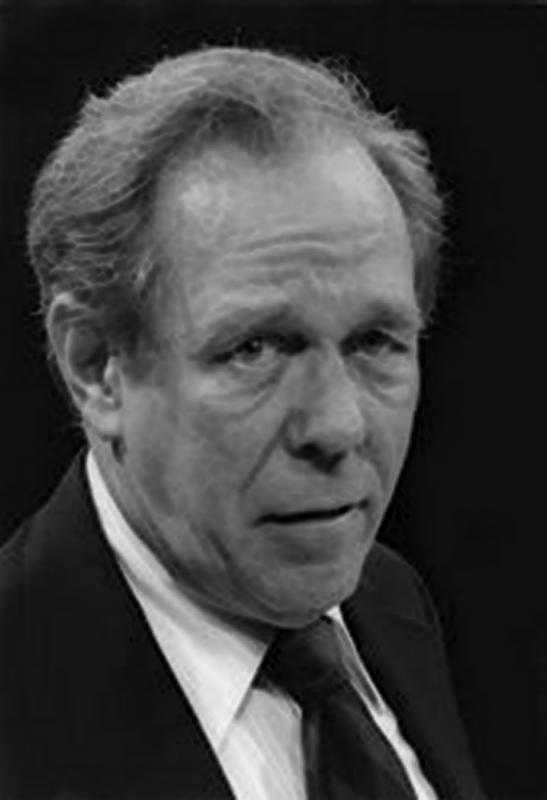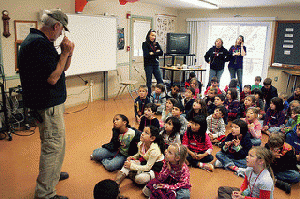Probably the most significant danger of our present system of education is that it seems to have forsaken Socrates. For Socrates, the mere passing on and acceptance of traditional thought and practice, the primary premise upon which most current curricula depend, is not education. Not only does such a practice tend to suppress the innate curiosity the first grader brings to class, but it discourages the critical thinking that Socrates insisted must lie at the very foundation of education. Unfortunately, the success or failure of the current system is primarily measured by the accursed "standardized testing." Such an approach tends to suppress critical thinking in favor of simple retention. Indeed, critical thinking on the part of the student all too often represents a threat to the teacher's need to meet the demands for ever higher standardized scores. It is these scores that have a tendency to become the primary criterion in assessing the merit of those same teachers. These scores also reflect the supposed success or failure of students and, subsequently, the system itself. Apart from the suppression of creativity, this practice, of course, carries with it a further evil. There is the temptation for the teacher to "teach to the test" and for both teacher and student to adopt the most direct and often questionable measures to improve test scores. This practice is commonly referred to as cheating. But it doesn't stop there. Entire systems have been corrupted with unreasonable demands for undeserved ratings, since much of their funding is based, of course, upon those test scores.
That said, I would like to propose a perhaps radical analysis of the problem. Before anything else, I contend that it is the professional politicians who know little about education-- and the professional educators who rely on their largesse--who should be called to account and identified as products of an incestuous system that corrupts both the moral and intellectual objectives that Socrates handed down. To accomplish this, we must totally reverse our approach to the problem of education, with its focus on our intellectual needs often to the exclusion of emotional needs. The intellect may tell us how to "make a living," but it is the emotions that guide us in how we live. Currently, however, our question seems to be, "How should we educate?" I would suggest that well before we even begin to consider HOW we educate, we must first answer the question of WHY.
First and foremost, it seems beyond logic that the focus of any system of education should be to meet the student's need for fulfillment of personal potential, whatever that may be. In reality, however, the current system leans more to indoctrination than to education in the Socratic sense. It is a system designed to meet the needs of the society, as opposed to one that meets the personal needs of the individual student. It becomes a system designed to equip the corporate world's bottom-line mentality with an adequate and obedient work force and, by indoctrination, to provide society with a sufficient number of sycophants to maintain conformity and stability. What its purpose should be is to preserve a natural curiosity that leads to creativity. The student must be provided with an adequate means of gratifying his or her potential for personal achievement and fulfillment, in concert with the innate talents he or she may possess. This is the only source of true happiness. A truly just society should be one that addresses the personal needs of its individual citizens, as opposed to the collective and often spurious needs of a society that in turn chooses to ignore the needs of the individual. The creation of a society that allows for each individual the maximum possibility for fulfillment and happiness should, therefore, be the broader aim and purpose of education.
Since there is little doubt that the actions of Pols and Pros in matters of education are ill advised (based on the current drop-out rate in both high school and higher), it should be in our interest to question the motivation of the so-called experts. I suppose it is unfair to suspect that these pompous proponents of an anti-humane system of education, designed to indoctrinate rather than educate, actually desire to curb fulfillment for the students they represent. I believe that most of them sincerely believe that they are acting in the best interests of all involved. However, it is my contention that if we probe deeper, we will find an allegiance to Mammon, with a need that has turned to greed. Therefore, no solution will be found without a society that demands freedom of choice over an accommodation and acceptance of the status quo. In short, it is our system of values that must be changed. Of course, in saying so, we must recognize that those who make up the public we speak of are also products of those same education and value systems which frown on deviation from the established norm. What will it take to help us recognize that we are being cleverly oppressed by a system that strongly favors the values of the material minded many, as opposed to the values of the humane few?
It's a very different society now than the one that was ushered in with the 60s. Those years brought more than a breath of fresh air. They brought a gust of wind that blew away the long-held sacred cow of sexual inhibition. They shattered some glass ceilings that denied equal opportunity to women. Social compliance was replaced with creativity. There was a demand for accountability, which led to the unheard of resignation of a President. As a teacher, however, I watched as the spirit gradually gave way to a desire to succeed according to the dictates of society's indoctrinated standards. By the end of the 70s, things had begun to revert to the rigidity of the past. While the rights of minorities continued to make some legal strides, their piece of the economic pie shrank as the attack on the middle class saw incomes actually decline, with the war on unions replacing the war on poverty.
Is there any possibility that we could recapture the spirit that acknowledges individuality without arrogance, acceptance without conformity and worth without wealth? It all begins with the purpose of education. Let us ask Why we should educate before we ask How.






